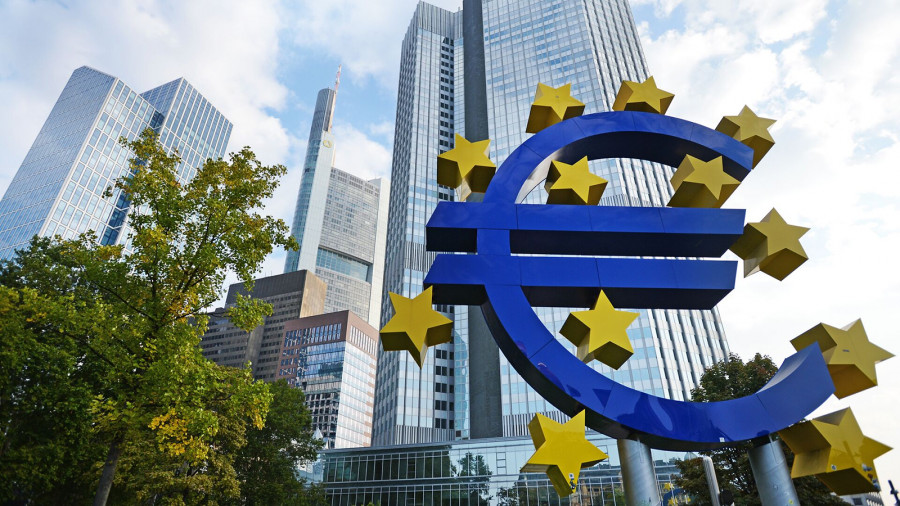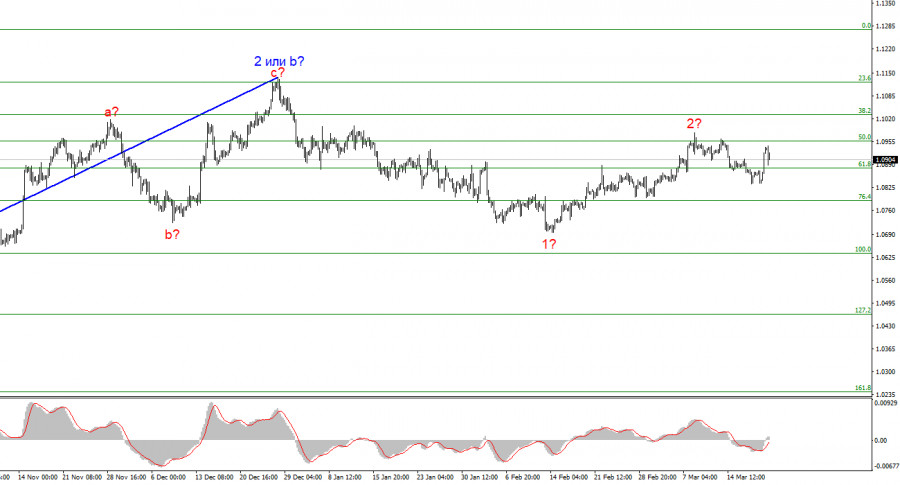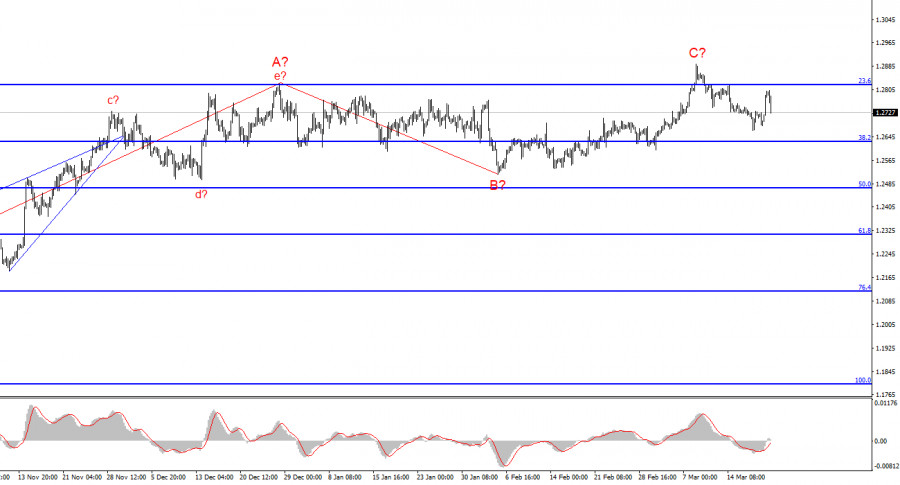
Friday ended rather uneventfully for both instruments. However, there were a few events throughout the day that deserved attention. I can't characterize them as important, but European Central Bank President Christine Lagarde's speeches don't happen every day. However, Lagarde was very brief. She only mentioned that she and the entire monetary committee expect inflation to continue to slow down. Lagarde has already mentioned this twice.
Lagarde also said that economic growth is projected to pick up in the course of 2024, mainly driven by increasing purchasing power. There was nothing else particularly interesting in her speech. Also on Friday, Bundesbank President Joachim Nagel spoke. His speech was even more important for the euro than Lagarde's speech, as Nagel directly mentioned the rate cuts. "The probability is increasing that we will see a first rate cut before the summer break," said Joachim Nagel, who is a member of the European Central Bank's governing council. He also mentioned that the central bank is leaning towards starting policy easing in June, but April can't be completely ruled out. From this, I conclude that the ECB will be ready to initiate the first round of rate cuts even in April if necessary. And the need may be very simple and trivial. If inflation continues to fall, the ECB simply won't have grounds to keep the rate at its peak level. Inflation is already at 2.6% annually. If it slows down to 2.3-2.4% in March, the ECB may move to lower rates as soon as April.

This is bad news for the euro, as at the same time the Federal Reserve continues to postpone the first rate cut to later dates. Based on this, the ECB may be the first to initiate easing, although the market has been expecting the opposite in recent months. It is this contradiction between expectations and reality that may support market demand for the dollar and weaken demand for the single currency. Such a news background fully supports the current wave pattern.
Wave analysis for EUR/USD:
Based on the conducted analysis of EUR/USD, I conclude that a bearish wave set is being formed. Wave 2 or b is complete, so in the near future, I expect an impulsive downward wave 3 or c to form with a significant decline in the instrument. An internal corrective wave is currently being formed, which could have already ended. I am considering short positions with targets near the 1.0462 mark, which corresponds to 127.2% according to Fibonacci.
Wave analysis for GBP/USD:
The wave pattern of the GBP/USD instrument suggests a decline. I am considering selling the instrument with targets below the 1.2039 level, because I believe that wave 3 or c will start sooner or later. However, unless wave 2 or b ends, the instrument can still rise to the level of 1.3140, which corresponds to 100.0% Fibonacci. The construction of wave 3 or c may have already started, but the quotes haven't moved far away from the peaks, so we cannot confirm this. A breakthrough of 1.2715 will encourage those who are bearish.
Key principles of my analysis:
Wave structures should be simple and understandable. Complex structures are difficult to work with, and they often bring changes.
If you are not confident about the market's movement, it would be better not to enter it.
We cannot guarantee the direction of movement. Don't forget about Stop Loss orders.
Wave analysis can be combined with other types of analysis and trading strategies.
The material has been provided by InstaForex Company - www.instaforex.comfrom Forex analysis review https://ift.tt/Mbvi5ml
via IFTTT

